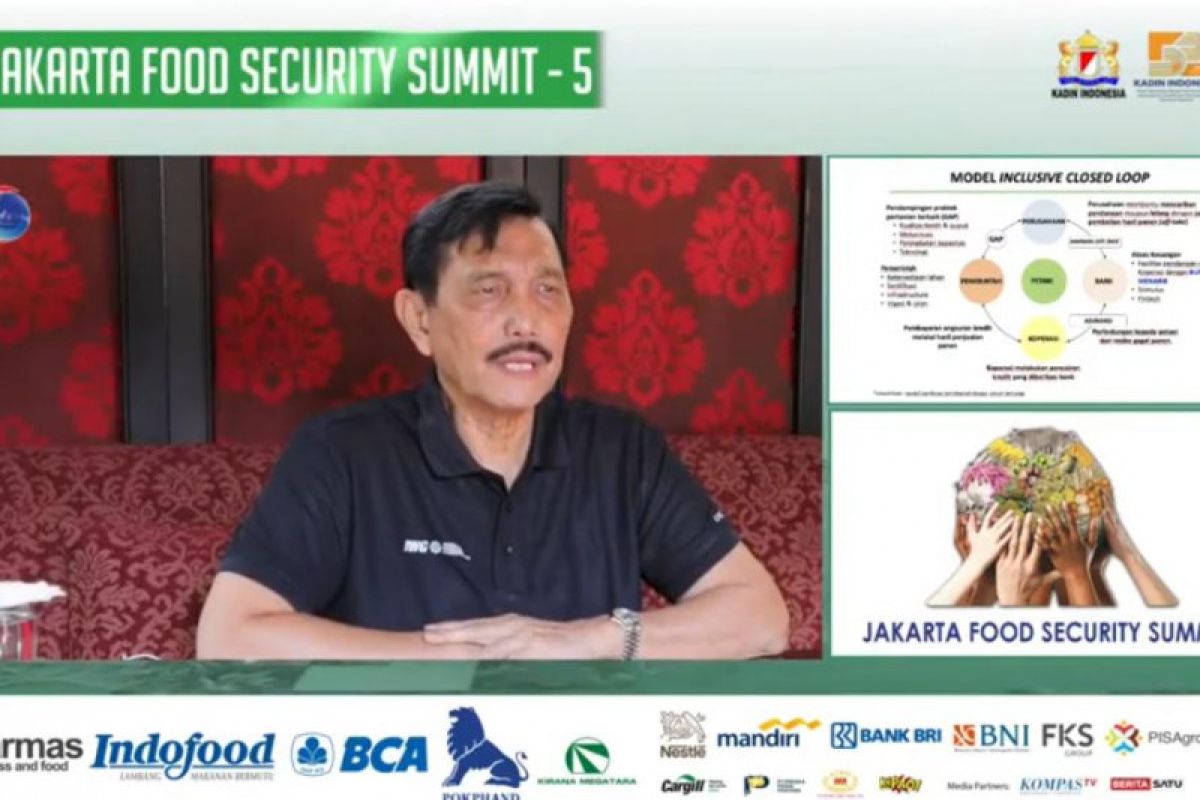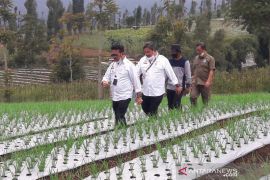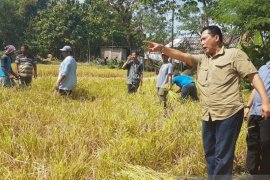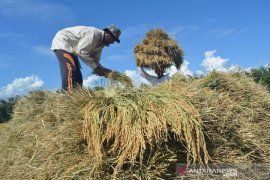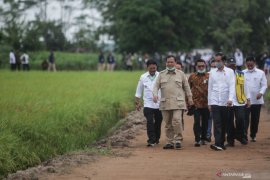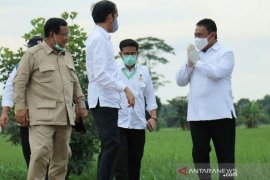Selection of the areas for the food estate's farmland is based on a survey, so they will not trespass the protected forests or other conservation zonesJakarta (ANTARA) - The Indonesian government has stressed that the farmland areas selected for its food estate programs in Central Kalimantan and North Sumatra provinces will not encroach upon protected forests and other conservation zones.
“Selection of the areas for the food estate's farmland is based on a survey, so they will not trespass the protected forests or other conservation zones," Coordinating Minister for Maritime Affairs and Investment, Luhut Binsar Pandjaitan, said.
Speaking at the 2020 Jakarta Food Security Summit (JFSS), held here online on Thursday, he said the development of food estates is a strategic and prioritized program for the government for the 2020-2024 period.
Food estates in Central Kalimantan will focus on rice and cassava farming, while those in North Sumatra will focus on horticultural crops, including shallots, garlic, carrots, and potatoes, he informed.
The integrated farming approach that is being developed in the two provinces is expected to set an example for applying corporate farming from upstream to downstream and from post-harvest to agricultural industry, he added.
The government is also encouraging the private sector to join in the government's efforts to develop farmlands related to its food estate program through public private partnerships, Pandjaitan said.
In connection with the food estate program, Agriculture Minister Syahrul Yasin Limpo recently revealed the ministry's plan to grow horticultural crops in Humbang Hasundutan village, North Sumatra province from this year.
The first phase of the food estate program would cover one thousand hectares of farmland, Limpo noted in a statement, made available to ANTARA, after his working visit to Ria-Ria village in Humbang Hasundutan (Humbahas) on September 12, 2020.
"We have planned to develop the food estate program on 30 thousand hectares of farmland in Humbahas district. As a trial, we are cultivating a thousand hectares of farmland this year," he informed.
Situated 1,400 meters above sea level, Humbahas has a climate conducive for cultivating potatoes and onions.
The ministry is chiefly prioritizing the development of horticultural crops to meet the demand for raw materials, including potatoes and onions, from food industries, Limpo revealed.
The Food and Agriculture Organization (FAO) of the United Nations has warned that the COVID-19 pandemic may trigger a shortage of food stockpiles.
In response to this warning, Indonesia is working to boost food security during the pandemic period and beyond.
To this end, the government has formulated a program to boost production capacity, bring about local food diversification, develop a food reserves system, encourage modern agriculture, and exports.
With food security being the prime focus, the government has been working on its food estate program by also developing 165 thousand hectares of land as farmland in Pulang Pisau district, Central Kalimantan.
Minister Limpo affirmed that the food estates will be developed by applying modern technology in farming.
Related news: C Kalimantan food estate to ensure peatland preservation: Ministry
Related news: Other provinces can emulate North Sumatra's food estate model: Jokowi
Related news: BRG develops 14 food resilience-based villages in peatland areas
Translator: Ade IJ, Rahmad Nasution
Editor: Sri Haryati
Copyright © ANTARA 2020
